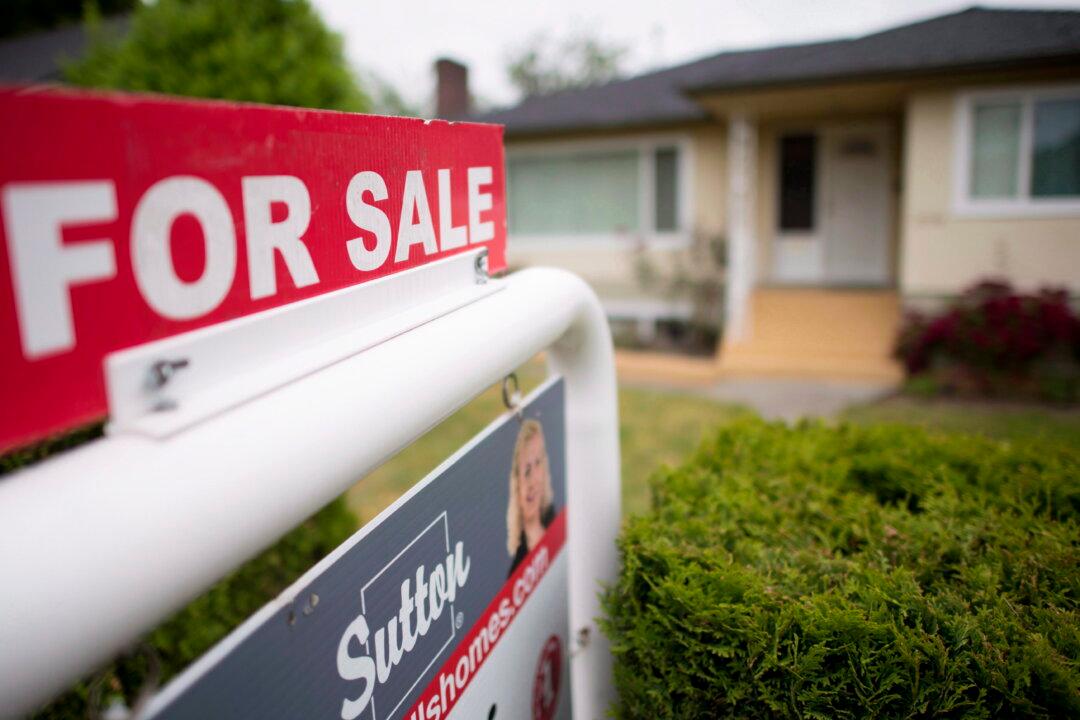The trend of declining home sales in British Columbia, which are already below normal, is forecast to continue into next year as rapidly rising mortgage rates weigh on buyers, says the B.C. Real Estate Association (BCREA).
In its forecast report released on Sept. 8, BCREA said residential home sales are projected to decline 34.4 percent from a record high of 124,877 units in 2021, to 81,900 units this year.





